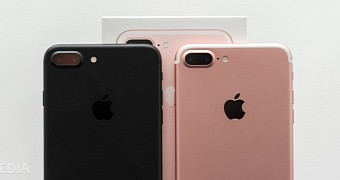Apple’s iPhones not only that do not listen to users without their consent for features like “Hey, Siri,” but they also block third-party apps from doing it, according to a response issued by the company to a letter sent to US lawmakers.
Representatives Greg Walden, Marsha Blackburn, Gregg Harper and Robert Latta requested Apple and Alphabet (parent company of Google) to detail how their smartphones handle user data for features that require listening to voice commands, including here “OK, Google” and “Hey, Siri.”
The US officials were concerned that such features could enable companies to spy on users without their consent, collecting audio data from their conversations even when a voice command to trigger such features wasn’t used.
But Apple says that despite listening for the “Hey, Siri” command, its digital assistant does not record audio, according to a Reuters report. Spoken words aren’t shared either, and Apple emphasized that it requires users to manually grant access to the microphone and each app using it must display an icon whenever they are listening.
Apple’s privacy push
However, Apple warned that while it does require apps to let users know when data is collected, it cannot control what developers do after such information lands in their hands.
“Apple does not and cannot monitor what developers do with the customer data they have collected, or prevent the onward transfer of that data, nor do we have the ability to ensure a developer’s compliance with their own privacy policies or local law,” Apple wrote.
Google’s parent company hasn’t said whether it replied to the letter or not. However, a spokeswoman for the Republican majority on the House Energy and Commerce Committee said that both companies have until now been very “cooperative.”
Apple has made the matter of privacy a key part of its mobile businesses, trying to protect user data with both software and hardware techniques. In late 2015, the company was involved in a legal dispute with the FBI after it refused to unlock the iPhone used by one of the San Bernardino terrorists, claiming that hacking one of its devices would have opened the door to a privacy invasion of all its customers.

 14 DAY TRIAL //
14 DAY TRIAL //